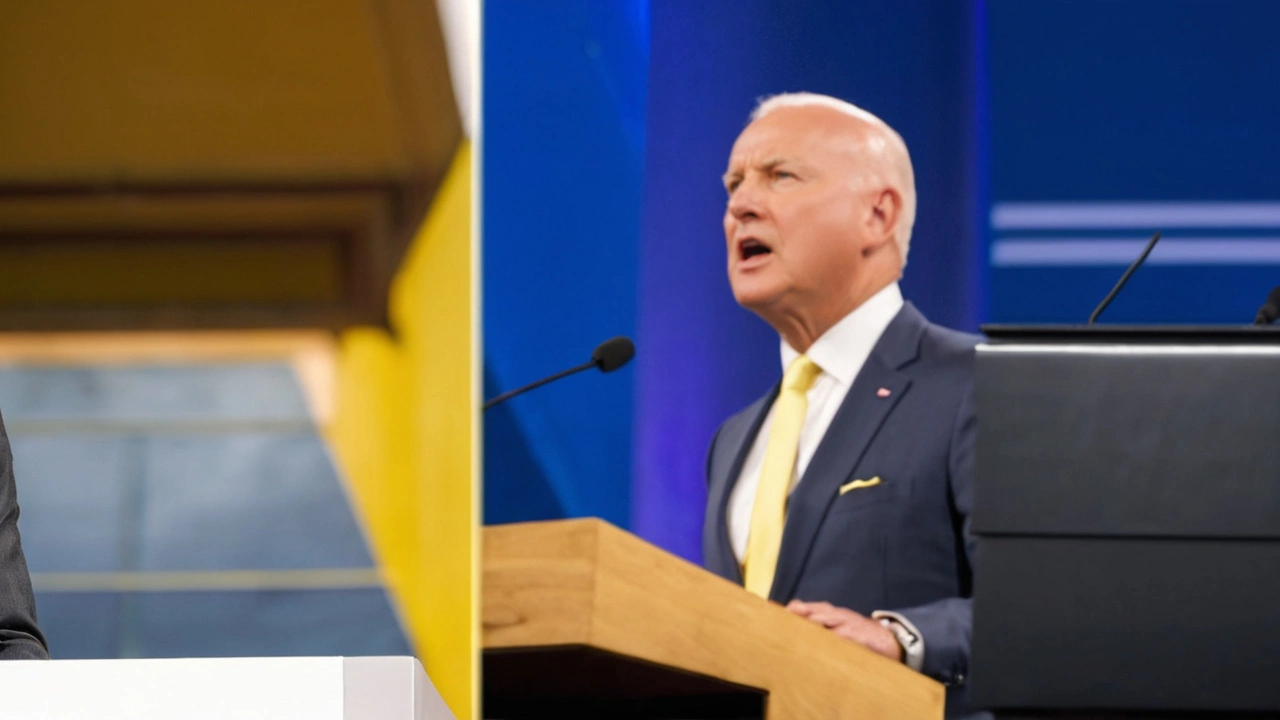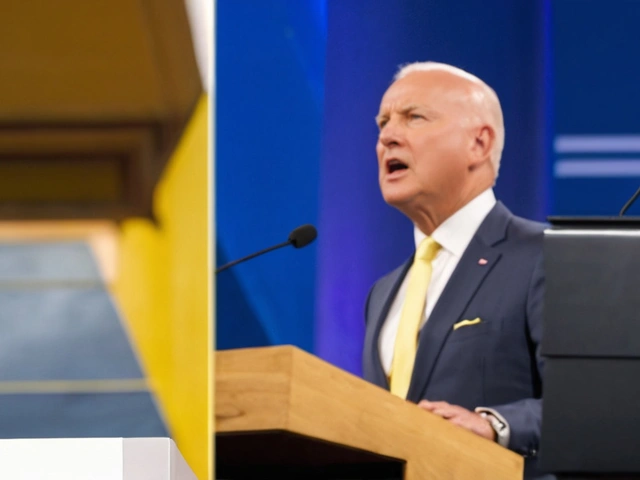Ford Foundation Resolutely Denies Claims of Sponsoring Violent Protests
The Ford Foundation has come forward to emphatically deny accusations levied against it by the Kenyan government, claiming the esteemed philanthropic organization funded 16 non-governmental organizations (NGOs) that allegedly fueled violent protests. These allegations have brought the foundation into the spotlight and raised serious questions about the role of foreign donors in local political unrest. Responding to these charges, the Ford Foundation has firmly stated that it does not, and never will, support or sponsor any activities that involve hate speech, violence, or lawlessness.
A Strong Stance on Social Responsibility
In a detailed statement, the Ford Foundation emphasized its longstanding commitment to upholding democratic values and promoting social justice. The foundation reiterated that its funding policies are non-partisan and do not, under any circumstances, align with activities that perpetuate violence or division within community. Additionally, the institution highlighted its crucial objective of fostering equitable societies, which is at the heart of its mission. The response comes on the heels of accusations by Kenyan President William Ruto, who accused foreign elements, including the Ford Foundation, of financially backing recent anti-government protests in Kenya.
Commitment to Peace and Democracy
Operating in Kenya for decades, the Ford Foundation has played a key role in supporting various initiatives aimed at boosting social justice and democratic processes. Through its comprehensive support for civil society organizations, the foundation has consistently worked towards addressing systemic injustices and inequality. It is, therefore, particularly distressing for the Ford Foundation to face allegations that utterly contradict the very principles it stands for. The foundation’s spokesperson unequivocally stated that any form of violence, or advocacy thereof, stands in direct opposition to their core values.
Kenyan Government’s Accusations
President Ruto’s claims have sparked significant controversy and debate. According to him, foreign funding was a catalyst in organizing and mobilizing the recent anti-government protests that had escalated into violence. This pointed accusation toward international foundations like the Ford Foundation has raised concerns about the involvement and influence of foreign entities in Kenya’s domestic affairs. The government’s stance reflects apprehensions surrounding national sovereignty and external interference, especially in the context of civil unrest.
Ford Foundation’s Response and Historical Contributions
While these accusations have created ripples, the Ford Foundation remains unfazed in its commitment to pursue its mandate. Historically, the foundation's support in Kenya has extended to a diverse range of initiatives, notably those focusing on human rights, democratic governance, and empowerment of marginalized communities. The foundation has been instrumental in backing grassroots organizations dedicated to fostering positive social change and has maintained a reputation for integrity and service.
Non-Partisan Philanthropy
Central to the Ford Foundation's operating ethos is its adherence to a non-partisan approach in all its grantmaking activities. By maintaining this stance, the foundation ensures that its funding and support are directed purely towards non-political, humanitarian objectives. This guiding principle assures that the foundation’s resources are used to promote fairness, equality, and justice without fostering division or political rancor.
The Path Forward
In the face of accusations and political pressures, the Ford Foundation has pledged to continue its vital work undeterred. Highlighting the importance of its initiatives, the foundation stressed that it would persist in providing much-needed support to NGOs working on crucial societal issues such as poverty alleviation, education, and community health programs. The foundation believes that these efforts are more critical than ever in these times of uncertainty and unrest.
Moreover, the Ford Foundation remains open to dialogue with the Kenyan government and other stakeholders to address any concerns and reinforce the transparency of its operations. This open-door policy reflects the foundation's commitment to collaboration and ensuring that its actions are always aligned with promoting peace, development, and stability in the regions it serves.
Conclusion
The current allegations against the Ford Foundation mark a significant moment in the discourse surrounding international philanthropy and its impact on local political landscapes. While the foundation stands firm in its denial of funding violence, the broader implications of such accusations cannot be ignored. This situation underscores the necessity for greater clarity and communication between foreign donors and local governments to uphold mutual trust and cooperation. As the Ford Foundation continues its philanthropic journey, its unwavering commitment to social justice and democratic values will remain a guiding beacon.



Comments
Oh sure, because philanthropies love bonfires of protest.
Looks like another day of blaming the scapegoat for every headline. I’ve seen more drama in a kid’s birthday party than in a grant ledger. If you ask me, the Foundation’s paperwork probably reads "don’t fund riots" louder than a toddler’s tantrum.
When we examine the ontology of philanthropic intent, we must first concede that the act of giving is inseparable from the power structures it seeks to transform; therefore, any accusation of “funding violence” is, at its core, an indictment of the very premise that external resources can ever be neutral. The Kenyan government’s narrative, however, seems less concerned with epistemic rigor and more with crafting a convenient villain, a trope that has persisted since the colonial era. Historically, the Ford Foundation has financed grassroots legal clinics, gender equity programs, and climate‑justice coalitions – all of which operate within civil society’s legitimate sphere. If those NGOs were merely conduits for subversion, one would expect the Foundation to have a roster of covert operatives, not publicly posted annual reports. Moreover, the idea that a grant of a few thousand dollars could orchestrate mass mobilizations ignores the complex, decentralized nature of protest movements, which are driven by lived grievances, not checkbooks. The rhetoric that foreign money is the spark reduces genuine popular discontent to a cartoonish plot device, thereby delegitimizing authentic demands for accountability. That said, transparency is a non‑negotiable ethic for any entity that claims to champion justice; mechanisms like open‑access grant databases and community audits help dispel suspicion. In practice, however, the murky nature of intermediary NGOs can inadvertently create opacity, a problem the Foundation acknowledges and seeks to mitigate. It is also worth noting that the Kenyan authorities have a history of conflating dissent with subversion, a strategy that stifles dissenting voices under the guise of national security. By casting the Ford Foundation as a foreign puppet master, the administration not only deflects from its own policy failures but also galvanizes nationalist sentiments that serve political ends. This mirrors a broader global pattern where states weaponize anti‑foreign rhetoric to consolidate power. Consequently, the discourse should shift from finger‑pointing to an examination of how local grievances are amplified by systemic inequities. Only then can we discern whether external funding is a catalyst or merely a peripheral factor. Ultimately, the Ford Foundation’s declared commitment to non‑partisan, non‑violent support remains consistent with its historical track record, but the debate underscores the necessity for rigorous, context‑sensitive scrutiny of all actors involved.
Listen, all this high‑falutin philosophy just masks the cold truth: funding is funding, and every dollar you claim is “harmless” can be weaponized by opportunists. The NGOs you champion often act as echo chambers for elite agendas, and the so‑called transparency is a smokescreen for elite gatekeeping. Your "non‑violent" mantra is a thin veil over a power play that reshapes societies to fit a neo‑colonial narrative.
My dear interlocutor, you underestimate the emotional gravity of a foundation that dares to stand against oppression. The sheer gall of accusing benevolent donors of inciting chaos betrays a profound moral bankruptcy; it is a tragedy worthy of Shakespearean lamentation. Let us not be swayed by petty cynicism when the stakes are the very souls of marginalized communities.
For anyone looking for clarity, the Ford Foundation’s grants are publicly listed on their website, and each project includes a detailed description of objectives and safeguards against misuse. If you’re concerned about potential conflict‑of‑interest, you can request their most recent audit reports – they’re typically available upon request. Engaging directly with the NGOs in question can also provide on‑the‑ground perspectives that are often missing from political rhetoric.
Interesting take. Grants are tracked; transparency matters. Labels like "violent" need evidence.
One could argue that painting every external donor with the brush of sabotage is an over‑simplified narrative, yet it's also tempting to view such accusations as a convenient deflection from domestic policy failures.
Ah, the age‑old drama of blaming the “outside hand” for every societal ill! We must, however, recognize that moral responsibility does not dissolve simply because an entity claims neutrality. It is imperative, therefore, to scrutinize the ethical frameworks governing grant allocations; otherwise, we perpetuate a dangerous illusion of innocence! Yet, let us not forget that the very act of protest is a moral statement against injustice, and to delegitimize it on the grounds of foreign funding is to silence a vital democratic voice!!!
Sure, blame the foundations, because it’s always that simple.